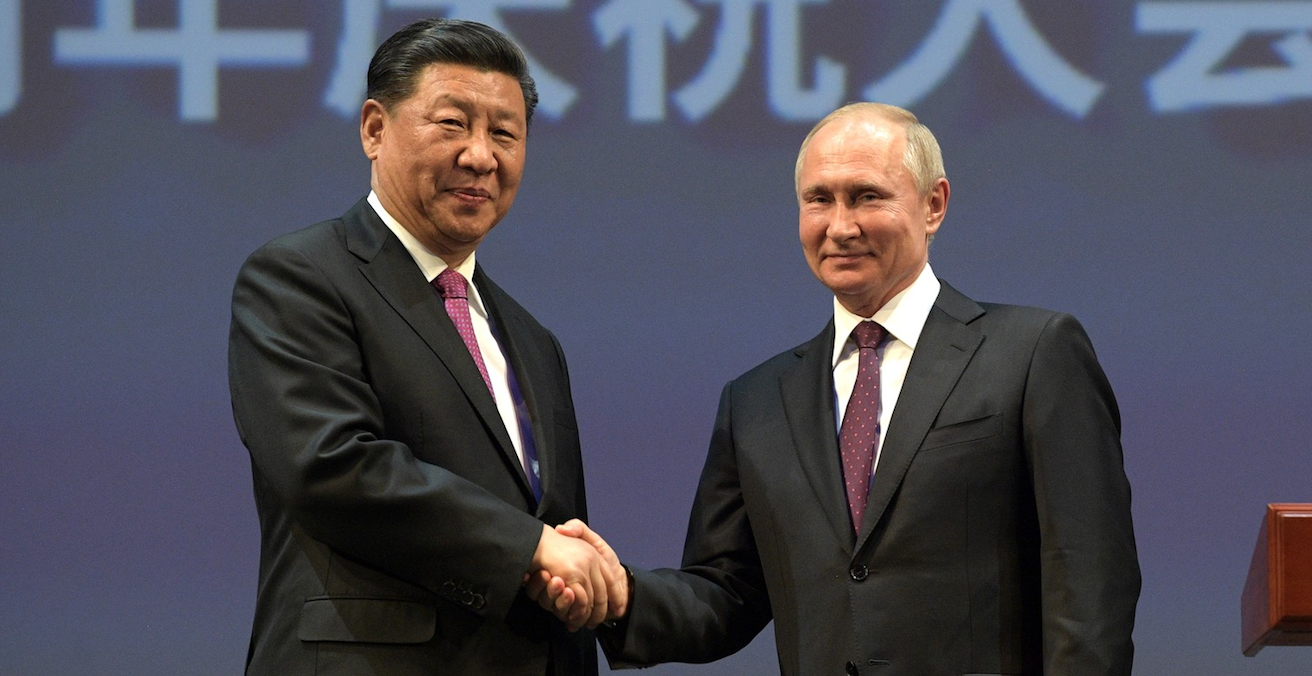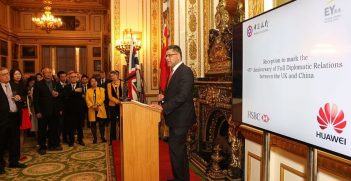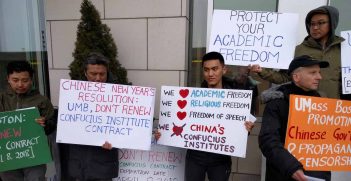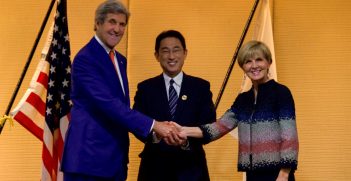The Axis of Authoritarianism: China, Russia and the New Geopolitics

The growing “bromance” between Xi Jinping and Vladimir Putin may be a development of world historical importance. Warmer relations may help to stabilise and unify Eurasia, long seen by some as a region of crucial strategic significance.
This article was originally published on Australian Outlook on 27 June 2019.
How times change. Little more than thirty years ago Francis Fukuyama confidently predicted the end of history and the triumph of democracy, free markets and Western values in general. Although it’s now almost obligatory to point out how wrong he was, in 1989 as the Berlin Wall was falling, plenty of people thought — or hoped — he had his finger on the historical pulse.
In the United States in particular, prominent commentators urged its leaders to take advantage of its “unipolar moment” of unparalleled strategic and ideological dominance to remake the world in its image. George W. Bush would eventually give it a try, with disastrous consequences that reverberate to this day. The rise of Donald J. Trump and the attractions of “America first” become easier to understand as a consequence of this quintessential period of hubris, folly and what Paul Kennedy famously described as “imperial overstretch.”
The international system looks rather different these days. Not only is there — yet another — instalment of the is-America-in-decline debate, but there are growing doubts about whether a populist like Trump understands, cares about or is willing to provide the sort of leadership that many thought was essential to underpin the much discussed but infrequently seen “rules based international order.” As a result, international politics is starting to look more like the nineteenth century than anyone expected.
Because the Trump administration is preoccupied with national priorities and seemingly indifferent about the fate of the international order its predecessors did so much to create, other “great powers” are assiduously working to expand their influence. Power abhors a vacuum. The rise of China on its own would have presented a major challenge to American hegemony: when combined with the re-emergence or development of other wannabe great powers it’s no surprise that the international system is “turbulent.”
What is surprising, perhaps, is that new friendships or marriages of convenience are emerging among former foes and adversaries. None is potentially more consequential than the growing bromance between Xi Jinping and Vladimir Putin. Given their checkered past it is testimony to how much the world has changed that these traditional rivals are cosying up to each other in ways that could transform the politics of Central Asia if not the world.
Students of geopolitics may recall that the nineteenth century founder of the discipline — the memorably named Halford Makinder — argued that Eurasia or the “heartland” of Russia and Central Asia was the most strategically significant area in the world, and the potential key to world dominance. Hitler certainly thought he had a point, and we all know how that ended.
I am not suggesting the Putin and Xi are diligent students of Makinder, although it should be noted forms of realist inspired geopolitical thought are especially popular in Russia. But if Russia and China do become closer or even formal allies, it would be a development of world historical significance. There are signs that they might.
Perhaps the most important development in this regard is that Putin has effectively given up on the West and the possibility that Russia will be embraced and accepted by the European powers. Russia has made a decisive and potentially irrevocable Eastward turn under Putin, and despite many lingering suspicions and misgivings, closer ties and forms of cooperation really do seem to be taking hold.
Russia’s enthusiastic embrace of the Shanghai Cooperation Organisation — which was China’s idea and its first major diplomatic success — is testimony to this possibility. Likewise, Putin’s vision of a “Greater Eurasian region” stretching from Shanghai to St Petersburg is the most eye-catching expression of his geopolitical reorientation, and one that has been welcomed by China.
Equally gratifying for Xi was not simply the scale of the reception he received on his recent visit to Russia, but the fact that his host took the opportunity to excoriate the Trump administration’s trade policies. Xi and Putin may be unlikely champions of globalisation, but their mutual antipathy toward the US and resentment of its enduring hegemony gives them a common cause like no other.
It’s also worth noting that India, another resurgent Asian power, is also a fully-paid up member of the SCO these days, and this also has major potential implications for the US, not to mention Australia. The great hope in Canberra, although not one that is spoken of too loudly, is that India will do its duty as a putative Quadrilateral dialogue partner and help to contain China’s rise. At this stage, it is far from clear whether Narendra Modi — another leader with an authoritarian streak — is willing to obligingly play the part of trusty democratic ally.
Perhaps Xi will fall out with what he calls his “best and bosom friend,” but you wouldn’t want to bet on it. Both Xi and Putin have much to gain from cooperation, especially of a rather instrumental nineteenth century variety. It is not inconceivable they may actually be able to help stabilise and unify “Eurasia” in a way that eluded both the British and the United States at the height of their respective hegemonic power.
The big thing to remember about China and Russia is that they are actually part of Asia, even if it has taken the actions of the West to remind President Putin of that. Australian policymakers may have to come to terms with an increasingly authoritarian, even anti-democratic Asian region on which our future prosperity and security depends. Might be time to swot up on geopolitical theory and revisit Mr Makinder.
Professor Mark Beeson researches Political Science and International Relations at the University of Western Australia and the AIIA National Research Chair, appointed in February 2017.
This article is published under a Creative Commons Licence and may be republished with attribution.





